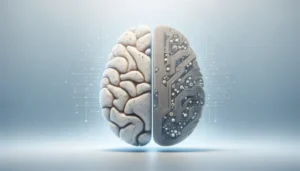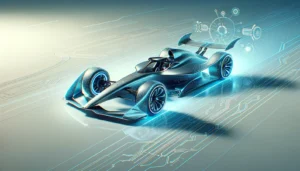Artificial Intelligence Evolution
The evolution of artificial intelligence (AI) is transforming industries by enabling smarter automation and enhancing decision-making systems. AI is becoming increasingly integral to everyday technologies and complex processes.
Future AI developments focus on creating systems that can autonomously set and pursue goals. These agentic systems will extend automation beyond simple task execution, augmenting human expertise across various sectors.
By integrating advanced AI, the next decade will witness significant shifts in how businesses operate and how individuals interact with technology, fostering innovation and efficiency at unprecedented levels.
AI-driven agentic systems and automation
AI-driven agentic systems operate by setting and achieving their own objectives, reducing the need for constant human oversight. This autonomy pushes automation beyond repetitive tasks to complex problem-solving.
Such systems will assist experts by managing intricate workflows and adapting dynamically to changing environments, increasing productivity and enabling creative applications of AI.
Automation powered by these intelligent agents promises faster decision cycles, improved accuracy, and the ability to handle massive data inputs with minimal latency, reshaping workflows.
Interesting Fact
Agentic AI systems can learn from outcomes to refine their strategies, enabling continuous improvement without explicit reprogramming by humans.
AI applications in healthcare and autonomous vehicles
AI plays a critical role in healthcare by personalizing treatments and enhancing diagnostics, enabling earlier disease detection and better patient outcomes.
In autonomous vehicles, AI integrates sensor data and real-time analytics to navigate complex environments safely, supporting the transition to driverless transportation.
These AI applications demonstrate how intelligent systems enhance safety, efficiency, and effectiveness in vital sectors, paving the way for widespread adoption of autonomous technologies.
Connectivity and Networking Advances
Connectivity is transforming with the rapid expansion of 5G networks, providing faster speeds and more reliable connections. This advancement supports emerging digital ecosystems globally.
The forthcoming 6G technology promises even lower latency and higher capacity, enabling new applications such as seamless augmented reality and fully remote operations in real time.
These improvements in connectivity are fundamental for innovations like the Internet of Things (IoT), smart cities, and immersive realities that require constant, high-speed communication.
Expansion of 5G and emergence of 6G technologies
5G networks bring ultra-fast internet and reduced delays, essential for supporting massive IoT deployments and enhanced mobile experiences in urban and rural areas.
Looking ahead, 6G will build on this by enabling new levels of network intelligence, integrating AI for optimized performance and security across devices and services.
The evolution of these networks will push boundaries of connectivity, allowing real-time data transmission for emerging tech such as holographic calls and advanced autonomous systems.
Internet of Things and smart cities development
The Internet of Things connects billions of devices, creating data-driven environments that improve efficiency and quality of life in urban settings.
Smart cities leverage IoT to optimize traffic, energy use, and public safety through sensors and real-time analytics, driving sustainable and responsive urban development.
As connectivity improves, these systems will become more integrated, allowing for predictive maintenance, reduced emissions, and more personalized public services.
Immersive augmented and virtual reality
Augmented and virtual reality technologies create immersive experiences by overlaying or replacing real-world environments with interactive digital content.
Advances in connectivity enable these realities to function smoothly, supporting applications in gaming, training, remote work, and telemedicine with minimal latency.
Such immersive technologies are transforming how people engage socially, learn, and collaborate, blending physical and virtual worlds in innovative ways.
Sustainability and Green Technologies
Sustainability is a key focus for future innovations, emphasizing clean energy and environmentally friendly technologies. This shift aims to reduce carbon footprints and promote eco-friendly practices globally.
Green technologies are expanding rapidly, with significant growth in electric vehicles and renewable energy sources contributing to a cleaner and more sustainable future.
These developments support global efforts to combat climate change while fostering economic growth through new technology-driven industries and job creation.
Clean energy and electric vehicles growth
The rise of clean energy sources like solar, wind, and hydro power is transforming the energy sector by providing sustainable alternatives to fossil fuels.
Electric vehicles (EVs) are gaining popularity as battery technology improves, reducing emissions and dependence on oil while boosting energy efficiency.
Governments and industries are investing heavily to accelerate clean energy adoption and EV infrastructure, enabling widespread use and improving environmental impact.
Nuclear energy and small modular reactors
Nuclear energy is seeing renewed interest, especially through the development of small modular reactors (SMRs) that offer safer and more flexible power generation.
SMRs can be deployed in a variety of locations, supporting grid stability and reducing greenhouse gas emissions compared to traditional fossil fuel plants.
This evolving technology, backed by AI and advanced designs, promises cost-effectiveness and scalability essential for meeting future energy demands sustainably.
Climate change solutions and environmental innovations
Innovations addressing climate change focus on carbon capture, sustainable agriculture, and energy-efficient technologies to lessen environmental impact.
Emerging solutions combine AI and green tech to monitor ecosystems, optimize resource use, and develop materials that reduce pollution and waste.
These combined efforts are crucial in mitigating climate risks while fostering resilient communities and promoting global environmental stewardship.
Advanced Computing and Emerging Fields
Quantum computing is entering a new phase with breakthroughs in error correction, making its powerful applications more accessible. It promises transformative impacts across diverse industries.
This emerging technology will revolutionize complex problem-solving tasks, such as cryptography, material science, and drug discovery, by leveraging quantum mechanics for unprecedented processing speed.
Alongside quantum computing, advances in robotics, synthetic biology, and space technologies are rapidly progressing, opening novel possibilities for the future economy and human life.
Quantum computing breakthroughs and applications
Recent milestones in quantum error correction are enabling stable quantum computations, which are critical for reliable and scalable quantum systems.
This progress allows quantum computers to tackle problems beyond classical capabilities, such as simulating molecular interactions for new materials and pharmaceuticals.
Industries including cybersecurity will benefit greatly, with quantum algorithms enhancing encryption methods and protecting sensitive data against emerging cyber threats.
Interesting Fact
Quantum supremacy has been demonstrated, proving quantum processors can solve specific problems faster than the most powerful classical supercomputers.
This breakthrough marks a pivotal step toward practical, widespread quantum computing applications within the next decade.
Robotics, synthetic biology, and space technologies
Robotics technology is evolving beyond industrial use, becoming adaptive and capable in dynamic real-world environments, enhancing automation and human-robot collaboration.
Synthetic biology advances are driving the creation of novel biological materials and therapies, offering breakthroughs in medicine, agriculture, and environmental sustainability.
Space technologies are expanding commercial activities beyond Earth’s orbit, with innovations enabling cislunar exploration and resource utilization in space.







